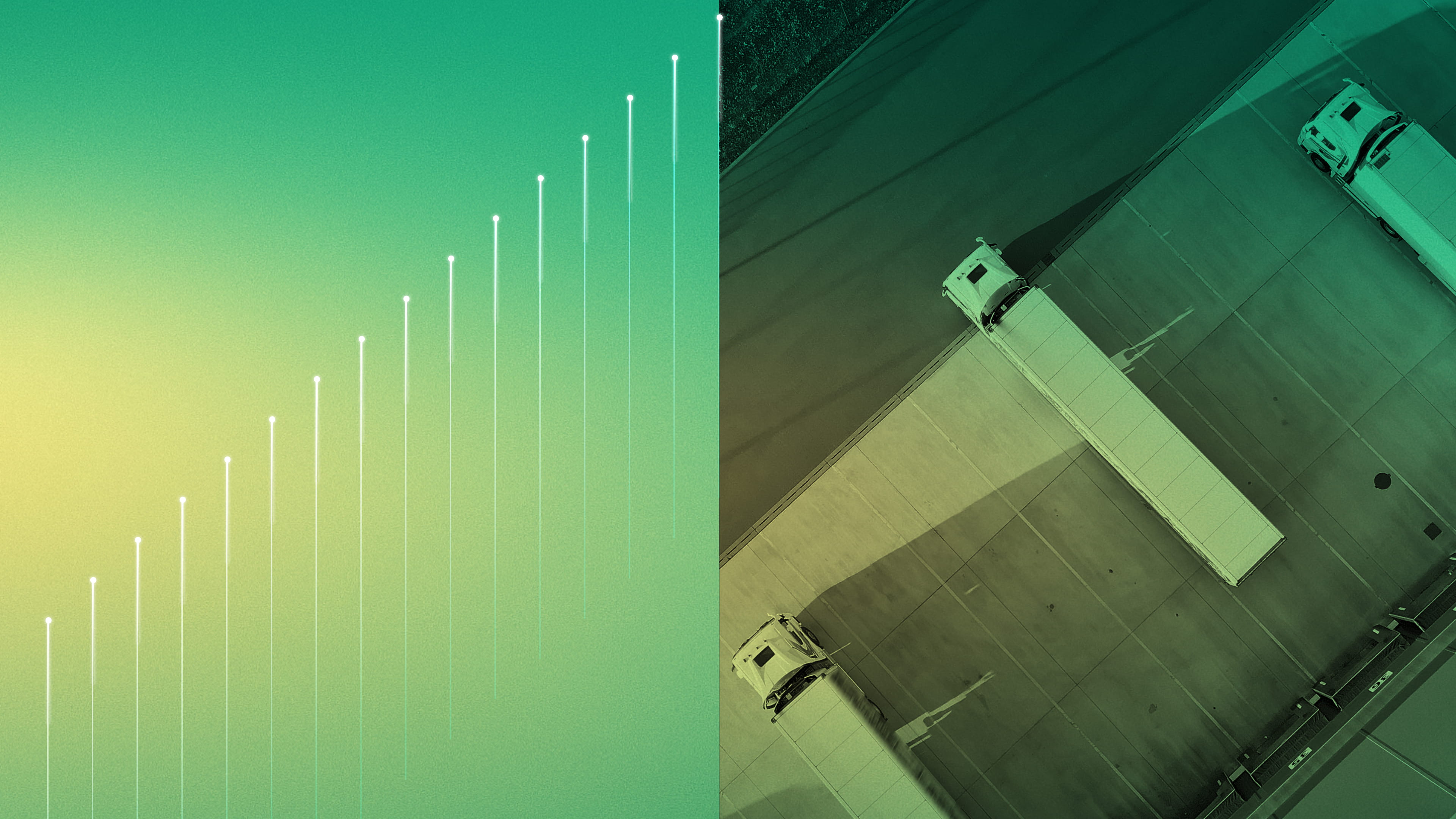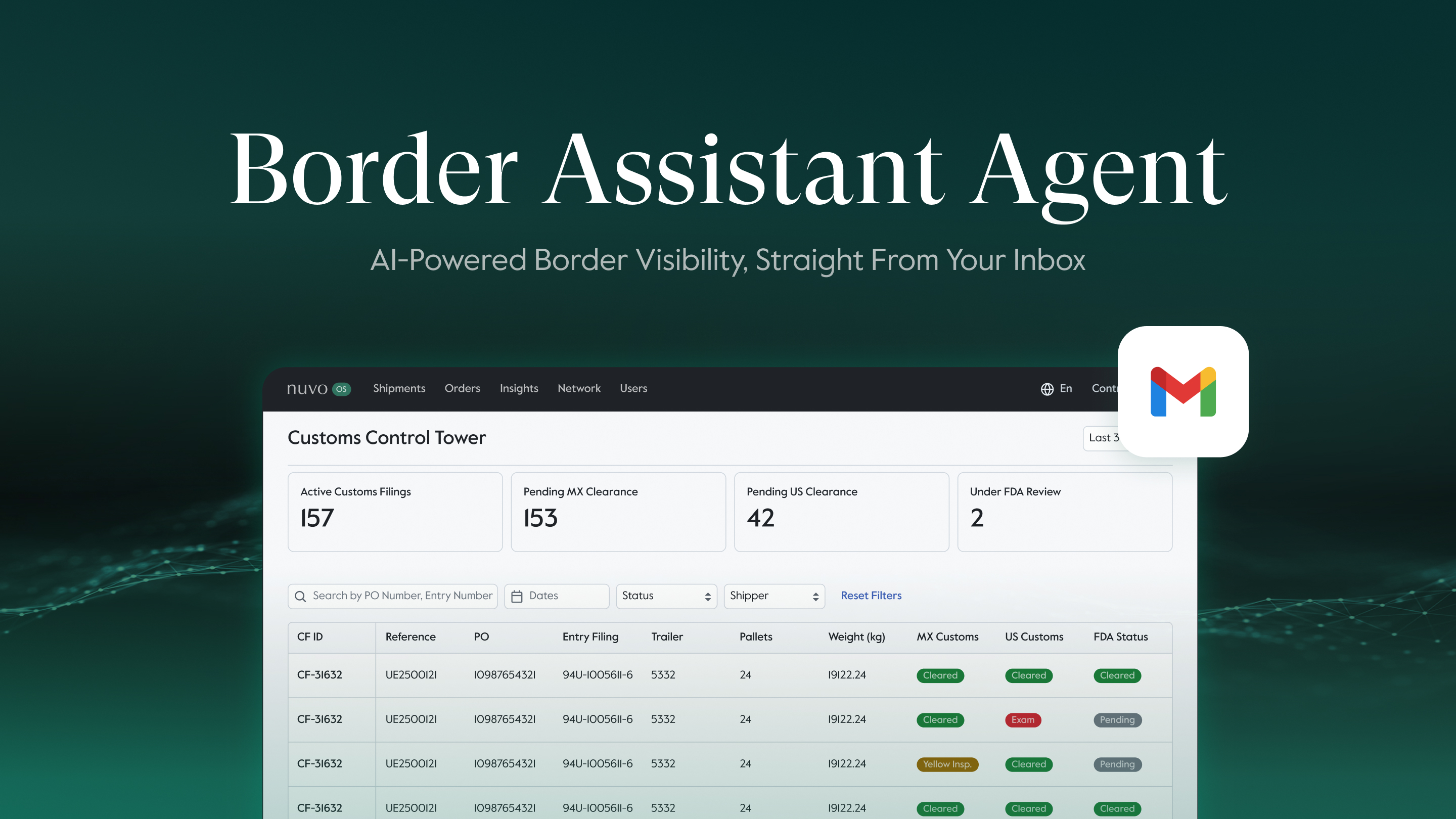Intro & Context
With the Complemento Carta Porte being implemented at the beginning of 2024, carriers and shippers are looking at further complexity in an already complicated process for cross-border shipments between the US and Mexico. We asked Josefina Blanco, Nuvocargo’s Head of Legal & Compliance, to answer some critical questions about CCP 3.0 to simplify this new requirement.
Below is a quick recap on the Complemento Carta Porte (CCP). You can find more information here. The CCP is essentially a mandatory bill of lading supplement that is attached to a Mexican carrier’s invoice for transportation services. It was first introduced in the Resolución Miscelánea Fiscal (RMF) for 2021 as a requirement to evidence the legal status of goods in Mexico. Since then, the regulation has been amended several times.
The RMF, for 2024, maintains the 2023 guidelines for issuing the CCP. These regulations have been enforceable since January 1, 2024. As of March 31, 2024, all CCP must be issued using version 3.0 of the Tax Authority’s (SAT) CCP software.
If you are shipping goods into or out of Mexico, you must comply with these updated requirements to avoid fines and penalties that became enforceable on January 1, 2024.
Overview of the Process
The servicing motor carrier issues the CCP with the invoice (CFDI) for transportation services. However, the shipper is responsible for sending the carrier all required data relating to the shipment’s origin, destination, and goods.
There are a minimum of 21 mandatory fields (including data relating to value, units, weight of goods, origin and destination, and the shipper and consignee’s tax information) that the shipper is responsible for sending to the carrier. Failure to do so in anticipation of the scheduled pickup time may lead to delays.
The carrier must then issue the CCP and send it to the driver (digital or physical) before the shipment leaves its origin in Mexico (or before crossing into Mexico if a Mexican resident carrier hauls the cross-border leg).
More Paperwork?
You may now wonder how Complemento Carta Porte integrates with other documentation or systems used in the transportation and logistics industry. For cross-border shipments to or from Mexico, the “folio fiscal,” a unique identifier associated with the Complemento Carta Porte (CCP), must be recorded in the Documento de Operación de Despacho Aduanero (DODA).
This requirement introduces an extra layer of complexity, as the DODA and CCP are issued by different entities —the customs agent and the servicing motor carrier, respectively— demanding accurate and swift processing to ensure compliance and efficiency in customs clearance.
In this context, specialized software tailored to cross-border solutions becomes invaluable. By automating data exchange, you can ensure the accuracy of the information; such solutions minimize the potential for errors and delays in the customs process. This streamlines the exchange of documentation without complicating communication between stakeholders and mitigates the risk of non-compliance penalties, making cross-border shipments smoother and more reliable for all parties involved.
Mistakes, Misconceptions & Fines
The rollout of CCP regulation has been challenging, so we want to clarify some common misconceptions about the newest version of the Complemento Carta Porte.
The most common misconception is that these regulations only create obligations (and potential liabilities for failure to comply) for carriers. Shippers —directly or through a broker with expertise in cross-border operations— are responsible for providing the information required to complete the CCP and have joint liability under certain circumstances. Additionally, any delays in the issuance of the CCP can lead to shipment delays, especially for customs clearance, where the regulation is being consistently enforced.
Below are the fines and penalties for failure to comply, including any errors or omissions in the CCP (as of this date). The fines and penalties were designed to ensure strict adherence to the regulations.
Penalties
- Failure to Issue CCP with CFDI: 400 to 600 MXN (22 USD to 36 USD) for each CFDI issued without the CCP.
- Failure to Exhibit CCP: 760 pesos to 14,710 MXN (45 USD to 850+ USD).
- Repeated Offenses: Penalties escalate significantly for recurrent violations, with fines ranging from 19,700 to 112,650 MXN (1,100 USD to 6,500+ USD). In some cases, this may include preventive closure of operations.
In some cases, the regulation imposes joint liability on the shipper or contracting party, emphasizing the interconnected responsibilities and underscoring the importance of accurate and timely information exchange and documentation.
Best Practices
At Nuvocargo, we love to help our partners navigate challenges by leveraging our expertise in cross-border operations and technology. Through tailored digital solutions and a dedicated Mexico compliance team, we can help streamline this process for shippers and carriers and mitigate the risks of human error in filling out and issuing the CCP.
Software platforms tailored to cross-border logistics can play a pivotal role in simplifying these processes for shippers and carriers, offering a range of functionalities designed to ensure accuracy, efficiency, and compliance, such as:
- Automated data entry and validation
- Real-time compliance monitoring
- Centralized document management
- Integration across systems
- Scalability
By leveraging digital solutions, businesses transporting goods within Mexico can significantly reduce the administrative burden of CCP compliance, focus on their core operations, and maintain a competitive edge in the logistics sector.
On the topic of a comprehensive compliance strategy for CCP, she adds:
“Ensuring smooth compliance and operation with CCP requires a multifaceted strategy, where staying current on constantly evolving regulations is critical. This involves diligent monitoring of updates from the SAT and customs authorities and leveraging official guidelines to understand compliance nuances. Additionally, harnessing technology through software solutions that automate and validate CCP documentation can significantly reduce errors and streamline processes. Effective communication also plays a critical role internally among teams responsible for supply chain operations, finance, and compliance, as well as externally with logistics partners and industry experts.” - Josefina Blanco, Head of Legal @ Nuvocargo.
Nuvocargo understands this is a pain point for shippers, particularly when they tender multiple daily shipments. That’s why our ops, product, engineering, legal, and compliance teams collaborated to roll out a solution to make this process seamless for shippers and carriers, which is now live.






























